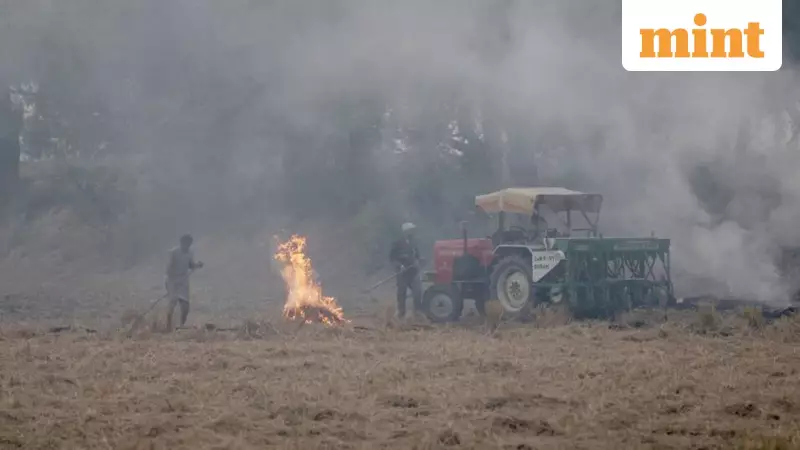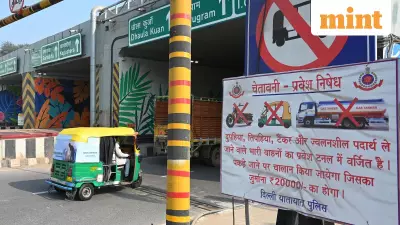
The Supreme Court of India has taken decisive action against the worsening air pollution crisis in northern India, directing the state governments of Punjab and Haryana to submit detailed status reports on measures taken to control stubble burning.
Court Intervention Amid Pollution Crisis
A bench led by Chief Justice B R Gavai and Justice K Vinod Chandran issued the directive on Wednesday, expressing serious concern about the deteriorating air quality in the National Capital Region. The judicial intervention comes at a critical time when GRAP Stage-III restrictions have already been implemented in Noida, leading to curbs on construction activities and vehicular movement.
During the proceedings, advocates highlighted the severity of the situation, with one counsel noting that while GRAP-III curbs are in place in Delhi, the current conditions actually warrant the imposition of GRAP-IV restrictions. The court was informed that construction activities were continuing within the Supreme Court premises itself despite the alarming air quality levels.
Alarming Pollution Data and Monitoring Issues
The Air Quality Index has reached dangerous levels, crossing 450 in some parts of Delhi, indicating severe pollution conditions that pose serious health risks to residents. Another significant concern raised during the hearing involved the poor functioning of air monitoring stations, with advocates claiming that the data being uploaded is inaccurate and doesn't reflect the true severity of the pollution crisis.
According to an ANI report, the court was presented with compelling evidence about the ongoing pollution emergency, including the concerning fact that AQI levels have consistently remained in the hazardous category across multiple monitoring stations in the region.
Persistent Stubble Burning Problem
The Commission for Air Quality Management has documented 4,360 cases of stubble burning in Punjab and Haryana combined between September 15 and November 10. In a particularly alarming development, Fatehabad district in Haryana recorded 59 cases of stubble burning during this period, with 28 incidents occurring on just November 8-9 alone.
The CAQM has issued a notice to Vivek Bharti, the Fatehabad Deputy Commissioner, for non-compliance with directives aimed at preventing stubble burning. The commission's November 10 notice expressed serious concerns about stubble burning continuing in Fatehabad despite repeated directions and review meetings.
In a 46-page affidavit submitted to the Supreme Court, the CAQM described stubble burning as a matter of "serious concern" and emphasized that the commission has been maintaining close watch on active fire counts detected through satellite monitoring. The commission has been engaging with state governments on a daily basis to ensure immediate remedial and preventive actions.
The Supreme Court's intervention underscores the urgent need for effective measures to control stubble burning, which remains one of the primary contributors to the severe air pollution that plagues northern India every winter, affecting millions of residents across multiple states.





